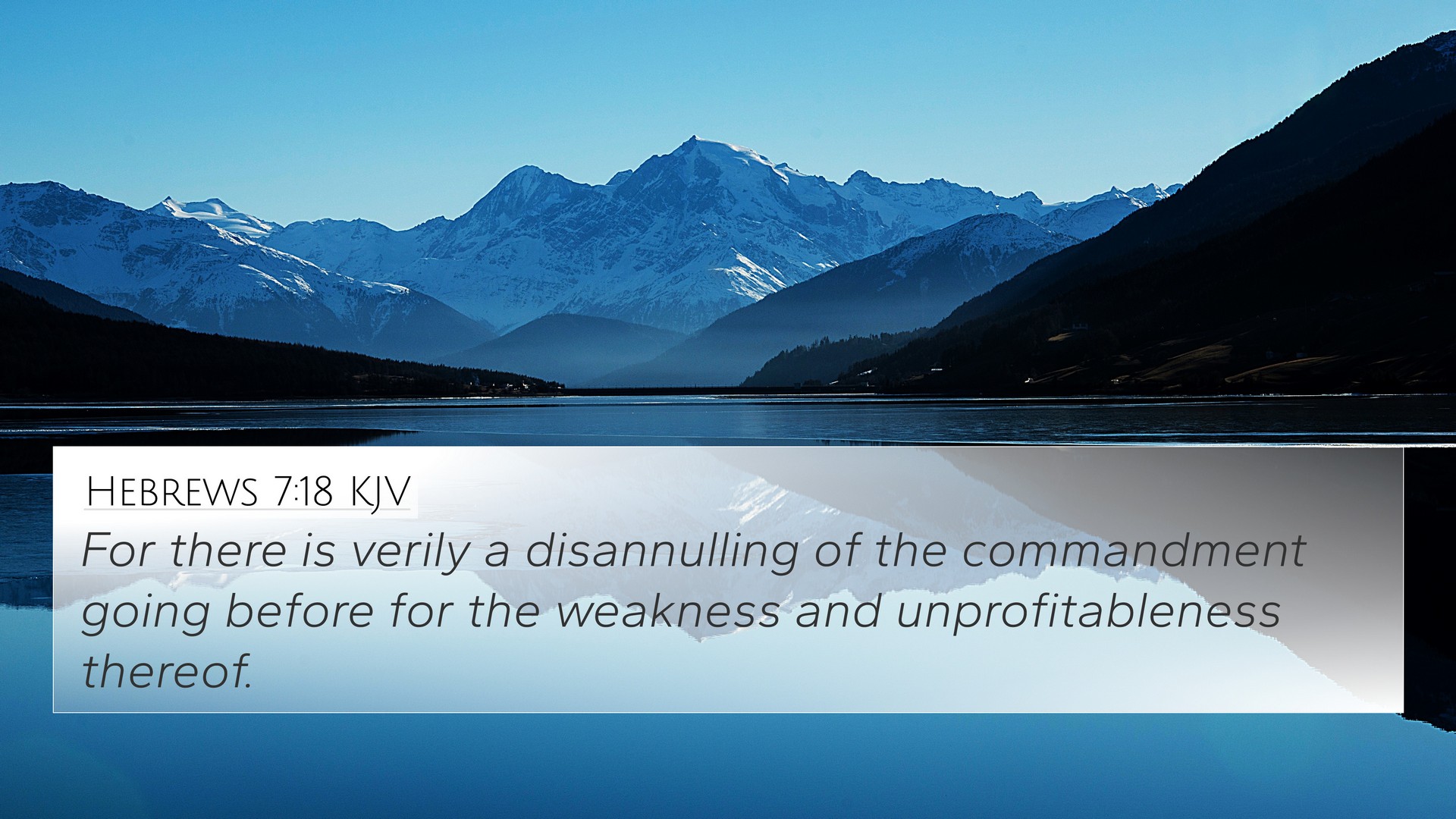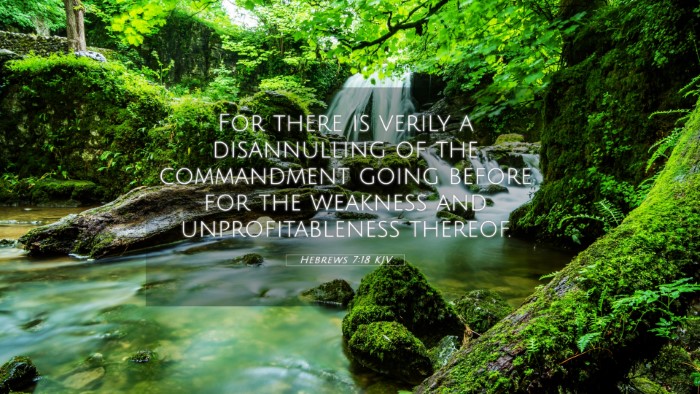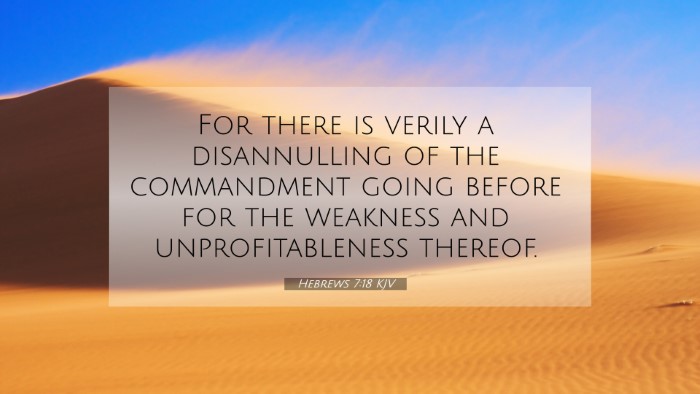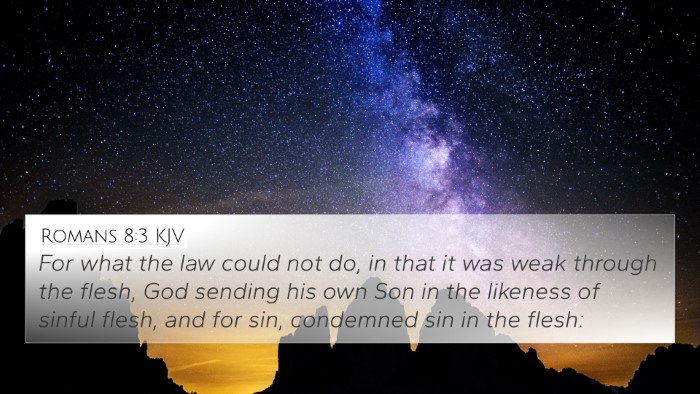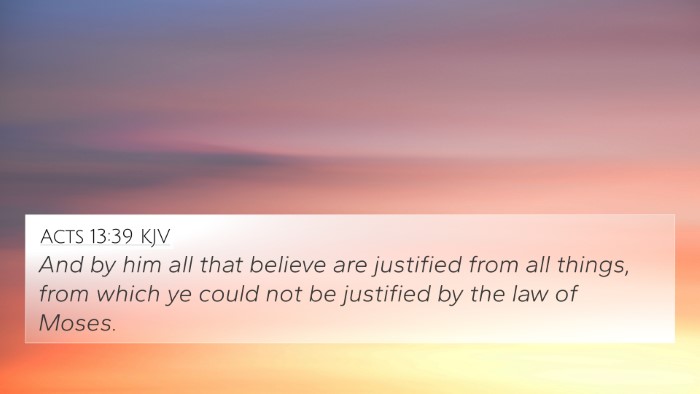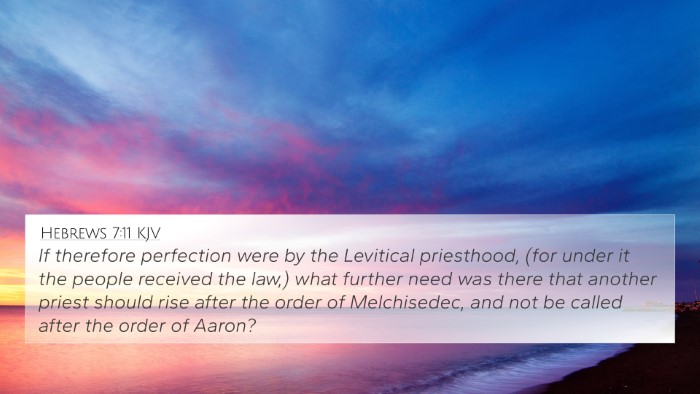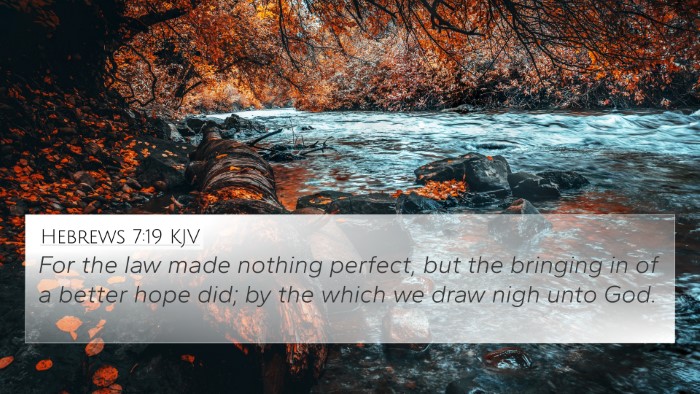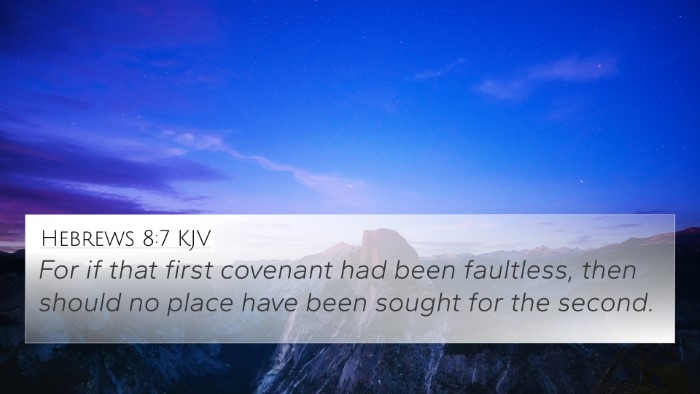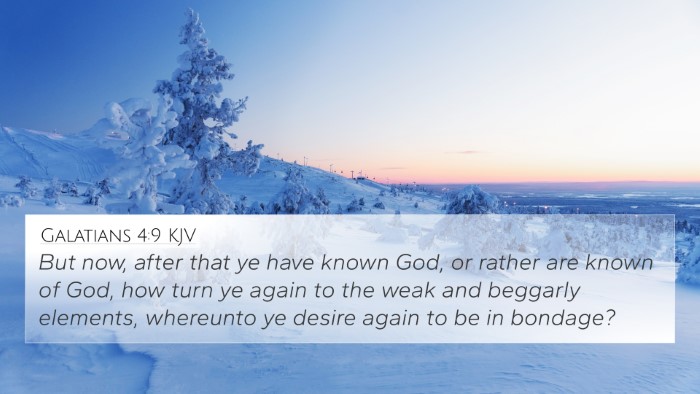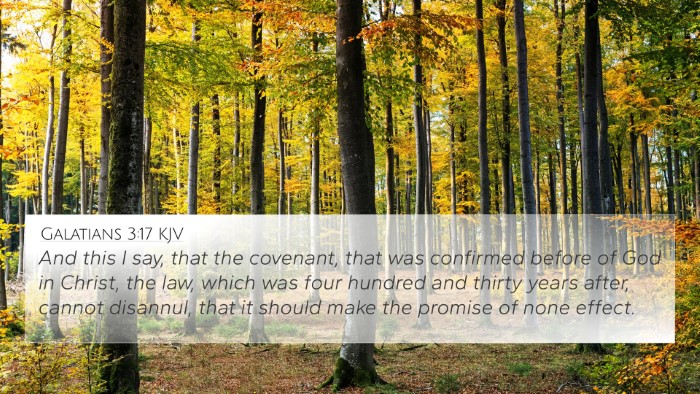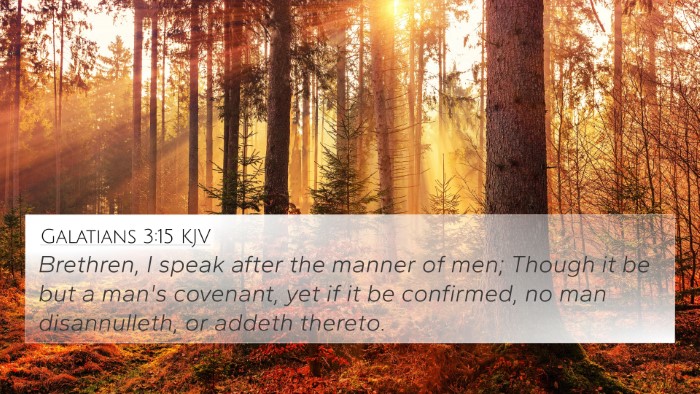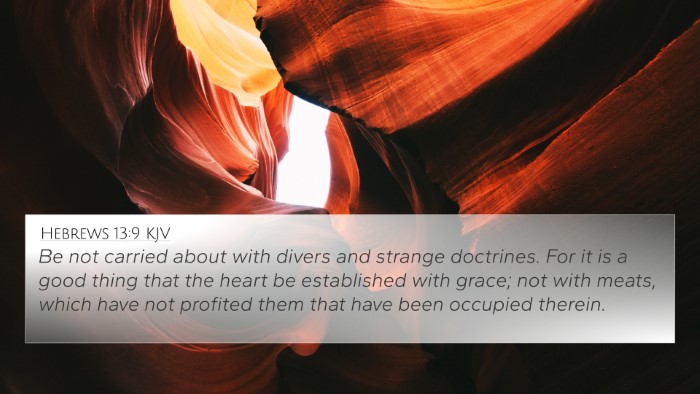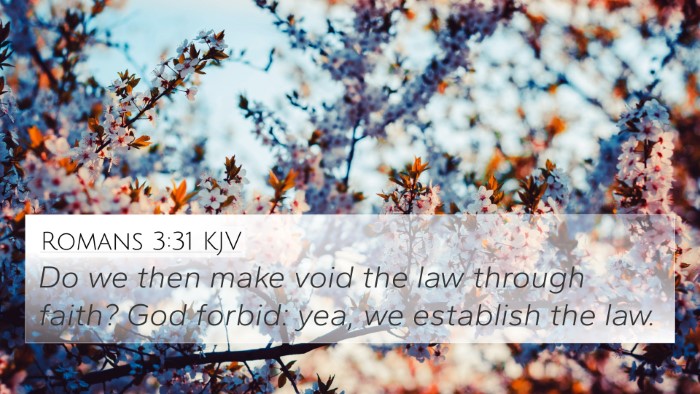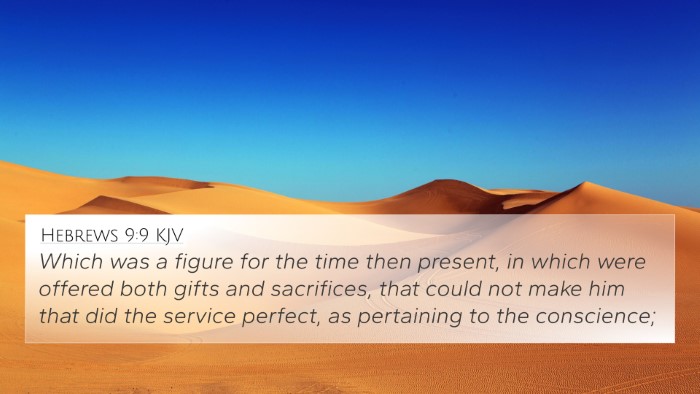Understanding Hebrews 7:18
Verse: "For there is verily a disannulling of the commandment going before for the weakness and unprofitableness thereof."
This verse is a part of a larger discourse concerning the priesthood of Jesus Christ, particularly reflecting on the contrast between the Levitical priesthood and the priesthood of Melchizedek. The author of Hebrews outlines a fundamental shift in the framework of religious law and order.
Commentary Insights
This analysis includes interpretations drawn from various public domain commentaries, including those by Matthew Henry, Albert Barnes, and Adam Clarke.
Matthew Henry's Commentary
Matthew Henry emphasizes the notion that the old covenant, established under the law of Moses, was inherently weak and unable to bring true righteousness. He highlights that the disannulling (nullification) of the commandment refers to the obsolescence of the Levitical system, setting the stage for a new order through Christ:
- The law was weak and unprofitable in achieving spiritual perfection.
- Jesus Christ, being a priest after the order of Melchizedek, introduces a more effective means of access to God.
- This shift illustrates God's provision of a better hope through Christ, who fulfills the promises of the old covenant.
Albert Barnes' Commentary
Albert Barnes points out that the commandment referred to is an outdated element of the Jewish religious system. He writes that the unprofitableness of the law is primarily due to its inability to provide salvation or spiritual completeness:
- Barnes asserts that the "disannulling" of this commandment signifies a divine transition from one system to another.
- This transition emphasizes that the law of Moses was never intended to be a permanent solution for sin but rather a precursor to the perfect sacrifice of Christ.
- He explains that the new covenant, inaugurated by Christ, allows for a direct relationship with God, thereby fulfilling the intent behind the sacrificial system.
Adam Clarke's Commentary
Adam Clarke provides an intricate analysis of the term "disannulling," indicating it involves both a cessation of the previous commandment and the introduction of a new and better way:
- Clarke suggests the law's effectiveness was limited to guiding Israel until the arrival of the 'better hope' through Christ.
- He explicates that the introduction of Christ’s priesthood fulfills the typological role established by Melchizedek, illustrating continuity in God’s redemptive plan.
- Furthermore, Clarke explains that the law cannot save; it brings knowledge of sin but not forgiveness, which is realized only through Christ.
Bible Cross References
To gain a deeper understanding of Hebrews 7:18, consider these related Bible verses:
- Hebrews 7:12 - The change in the priesthood necessitates a change in the law.
- Romans 8:3-4 - The law was weakened by the flesh, but God's sending of His Son rectifies this.
- Galatians 3:24-25 - The law was our guardian until Christ, after which faith comes into play.
- 2 Corinthians 3:6 - The letter kills, but the Spirit gives life, showing the transition from the old to the new covenant.
- Matthew 5:17 - Jesus did not come to abolish the law but to fulfill it, highlighting the continuity and eventual fulfillment through Him.
- Colossians 2:14 - Christ has canceled the record of debt that stood against us, akin to disannulling the commandment.
- Acts 13:39 - Through Jesus, everyone who believes is freed from everything you could not be freed by the law of Moses, emphasizing the law's limitations.
Thematic Connections and Cross-Referencing
Understanding Hebrews 7:18 requires traversing both the Old and New Testaments:
- Identifying Connections: Explore how the priesthood is established in Exodus and later culminates in Jesus’ role in the New Testament.
- Comparative Analysis: Look at the differences and similarities between the roles of Melchizedek and Christ, suggesting a type and antitype relationship.
- Cross-Referencing Principles: Use tools like a Bible concordance to draw parallels and greater insights from related scriptures.
- Scriptural Dialogue: Understand how the themes of sacrifice, law, and redemption are interwoven throughout biblical texts, providing a full narrative of God’s plan for humanity.
Conclusion
Hebrews 7:18 is a powerful verse that encapsulates the transition from the old covenant to the new, highlighting the insufficiencies of the Mosaic law and the fulfillment found in Christ's priesthood. Through cross-referencing, one can see the rich tapestry of connections throughout Scripture that support and elaborate on this significant theological shift.
